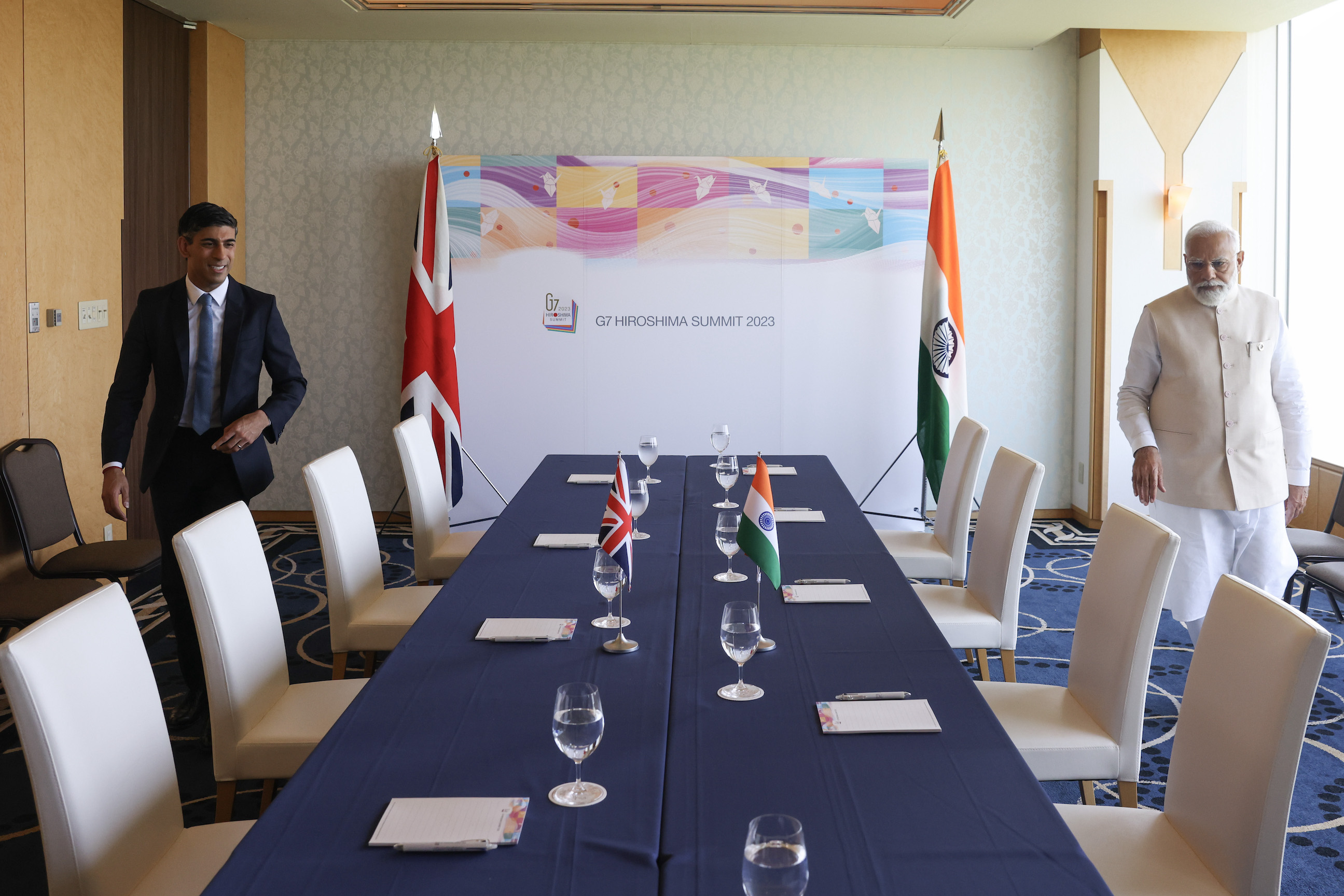Rishi Sunak has said his visit to New Delhi on Saturday as the first British-Indian prime minister will be “special”, as he pointed to descriptions of him as “India’s son-in-law”.
Speaking on a flight to Delhi ahead of the G20 summit, the PM told reporters the country was “very near and dear to me”.
Alongside appearances with foreign leaders as part of the summit, Sunak will hold talks with Narendra Modi, the Indian prime minister, over the prospect of a UK-India free trade agreement (FTA) thought to be in the final stages of negotiations.
It is understood that Modi’s negotiators had previously been demanding more visas for nurses and IT professionals as the price of a deal with the UK.


Modi has also reportedly called for the deal to liberalise visa rules for Indian students in any deal.
But Sunak has so far refused to offer more work and student visas to India in a move that will be seen as a victory for Conservative backbenchers on the right of the party.
Home secretary Suella Braverman reportedly pushed the prime minister not to hand out more student visas to India during Tuesday’s cabinet meeting
“This is a trade deal, it is focused on trade and business, immigration is a separate issue”, the PM’s official spokesperson told reporters en route to New Delhi.
“The only aspect of movement of people covered by an FTA is business mobility, which is the temporary movement of businesspeople for specific purposes.”
He added: “There are no plans to change our immigration policy to achieve this FTA.”
The official spokesman played down the idea a deal could be sealed when the pair meet for bilateral talks on Saturday.
Sunak told cabinet on Tuesday he would only do a deal “that works in the interests of the whole UK” with no arbitrary deadline.
He added: “I think there’s an important point to stress on visas. The prime minister has been clear he believes that the current levels of migration are too high.
“He and the home secretary, indeed the immigration minister [Robert Jenrick], are united in their commitment to reducing net migration.”

